So you’re planning an adventure to some of the world’s most vibrant and tropical regions? That’s amazing! But you’ll want all the info on yellow fever vaccine before travel to places like Africa or South America.
In this guide, we’ll walk you through what the yellow fever vaccine is, why it’s necessary for your travels, and what side effects you might expect. We’ll also discuss how to get your vaccination certificate, and what to do if you misplace it. Lastly, we’ll share some practical advice on when and where to get vaccinated before you head off on your adventure.
Let’s get you ready for a safe and amazing trip!
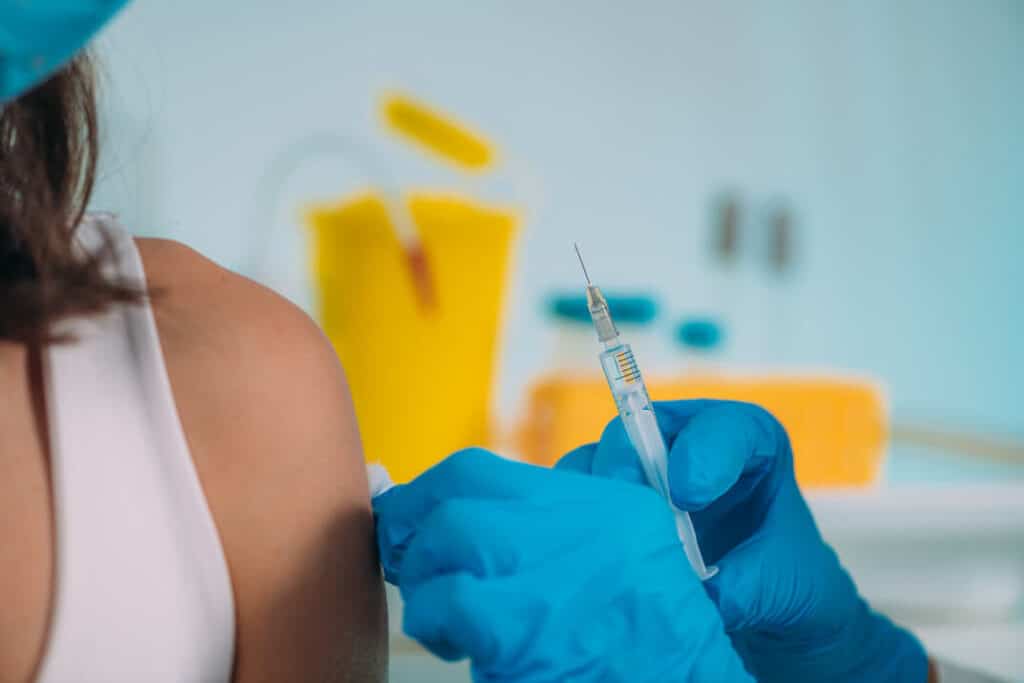
What Is Yellow Fever?
Yellow fever is caused by the yellow fever virus and is transmitted primarily through the bite of infected Aedes or Haemagogus mosquitoes. Unlike some other mosquito-borne illnesses, yellow fever can be both acute and severe, potentially leading to life-threatening complications.
Severe yellow fever can lead to serious health issues such as jaundice (yellowing of the skin and eyes), bleeding, and organ failure, particularly affecting the liver and kidneys.
Symptoms of yellow fever typically appear 3 to 6 days after being bitten by an infected mosquito and can range from mild to severe. Mild symptoms include fever, chills, severe headache, back pain, general body aches, nausea, and vomiting. In severe cases, symptoms may progress to high fever, jaundice, bleeding, and multiple organ failure.
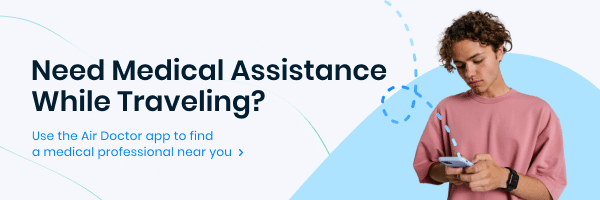
What Is The Yellow Fever Vaccine?
The yellow fever vaccine is a safe and highly effective way to protect yourself from yellow fever, a viral disease transmitted by infected mosquitoes. The vaccine is made from a live, weakened form of the yellow fever virus and is injected. It stimulates your immune system to develop immunity without causing the disease itself.
How It Works
When you receive the yellow fever vaccine, your body responds by producing antibodies. These antibodies help your immune system recognize and fight off the yellow fever virus if you are ever exposed to it in the future. This provides long-lasting protection, often for life.
Side Effects
Getting the yellow fever vaccine for travel is highly effective and generally safe. But, like any vaccine, it can cause some side effects.
Yellow fever vaccine side effects include:
- Headaches
- Muscle pain
- Fever
- Soreness at the site of the injection
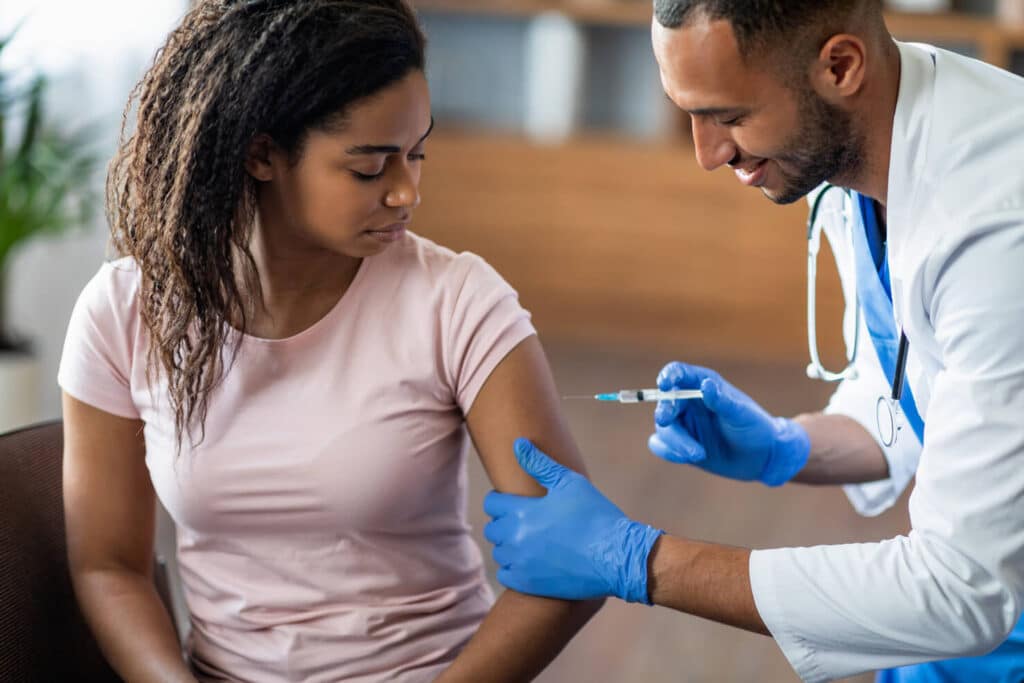
Countries That Require The Yellow Fever Vaccine For Travel
Many countries have specific entry requirements related to the yellow fever vaccine, especially those where yellow fever is endemic or where outbreaks occasionally occur.
These requirements are put in place to prevent the spread of the disease and to protect the health of residents and travelers alike. Here’s a list of countries that require that you have the yellow fever vaccine before travel:
Africa:
- Angola
- Benin
- Burkina Faso
- Burundi
- Cameroon
- Central African Republic
- Chad
- Congo (Republic of)
- Côte d’Ivoire (Ivory Coast)
- Democratic Republic of the Congo
- Equatorial Guinea
- Ethiopia
- Gabon
- Gambia
- Ghana
- Guinea
- Guinea-Bissau
- Kenya
- Liberia
- Mali
- Mauritania
- Niger
- Nigeria
- Rwanda
- Senegal
- Sierra Leone
- South Sudan
- Sudan
- Togo
- Uganda
South America:
- Argentina (certain regions)
- Bolivia
- Brazil
- Colombia
- Ecuador (excluding the Galápagos Islands)
- French Guiana
- Guyana
- Panama (certain regions)
- Paraguay
- Peru
- Suriname
- Trinidad and Tobago (Trinidad only)
- Venezuela
Asia
- India (for travelers coming from countries known for having yellow fever)
- Indonesia (for travelers coming from countries known for having yellow fever)
- Thailand (for travelers coming from countries known for having yellow fever)
Oceania
- Papua New Guinea (for travelers coming from countries known for having yellow fever)
Middle East
- Saudi Arabia (for travelers coming from countries known for having yellow fever)
If you’re unsure, you can always take a look at this list from the World Health Organization (WHO).
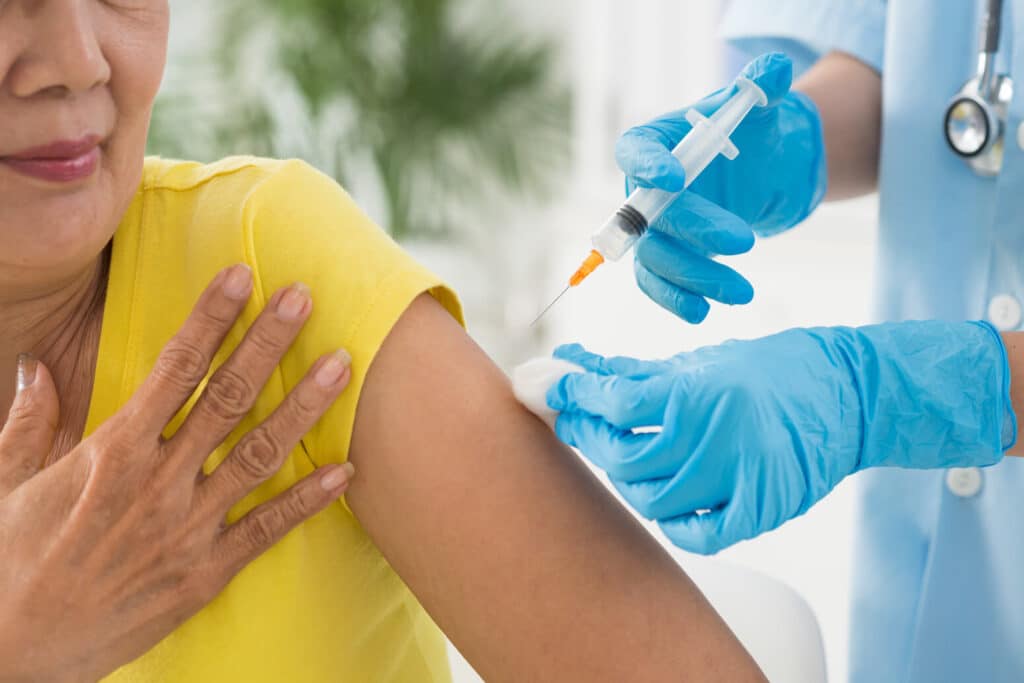
Getting Your Vaccine Certificate
After you receive your yellow fever vaccine, it’s crucial to get an official vaccination certificate. This document serves as proof of immunization, which may be necessary for entry into certain countries or for specific activities. Here’s what you need to know:
1.Visit a Certified Healthcare Provider: Make sure you get your vaccine from a certified healthcare provider, such as a travel clinic, hospital, or doctor’s office. These providers can issue valid vaccination certificates.
2. Request the Certificate: After your vaccination, ask for a certificate that includes the following information:
- Your full name and date of birth
- The name and batch number of the vaccine administered
- The date of vaccination
- The healthcare provider’s name, signature, and contact information
- An official stamp or seal from the issuing clinic or healthcare provider
3. Digital Certificates: Some healthcare providers offer digital vaccination certificates. These can be stored on your smartphone or printed as needed. Ensure the digital certificate contains all necessary information and is recognized by authorities.
Managing Your Vaccination Certificate
Proper management of your vaccination certificate is essential to ensure it remains valid and accessible when needed. Here’s how to handle it:
Store It: Store your physical vaccination certificate in a secure, easily accessible place, such as a travel document organizer or a dedicated folder.
Make Copies: Photocopy or scan your vaccination certificate and keep a digital copy on your phone or in cloud storage. This provides a backup in case the original is lost or damaged.
Update Regularly: If you receive booster shots or additional vaccines, ensure your certificate is updated accordingly. This can be done at the same healthcare provider where you received your initial vaccination.
Carry It When Traveling: Always carry your vaccination certificate with your travel documents, especially when traveling to countries that require proof of vaccination for entry.
What to Do If You Lose Your Certificate
Losing your vaccination certificate can be stressful, but here are steps you can take to replace it:
- Contact the Issuing Healthcare Provider: Reach out to the clinic or healthcare provider where you got your vaccine. They can issue a replacement certificate.
- Check Digital Records: If you have a digital copy of your vaccination certificate, print it out and ensure it includes all required details. Many health authorities now accept digital records.
- Consult National Health Databases: Some countries maintain national immunization registries. Check if your vaccination records are stored in such a database and request a copy.
- Visit a Travel Clinic: If you cannot retrieve your certificate from the original provider, a travel clinic may assist in verifying your vaccination status and issuing a new certificate.
- Document Your Vaccinations: Keep a personal record of all vaccinations, including dates, vaccine names, and healthcare provider details. This information can help healthcare providers recreate your vaccination history if needed.
When To Get The Yellow Fever Vaccine For Travel
Making sure you get the vaccine in time is important!
According to the NHS, you should get your vaccine at least 10 days before traveling.
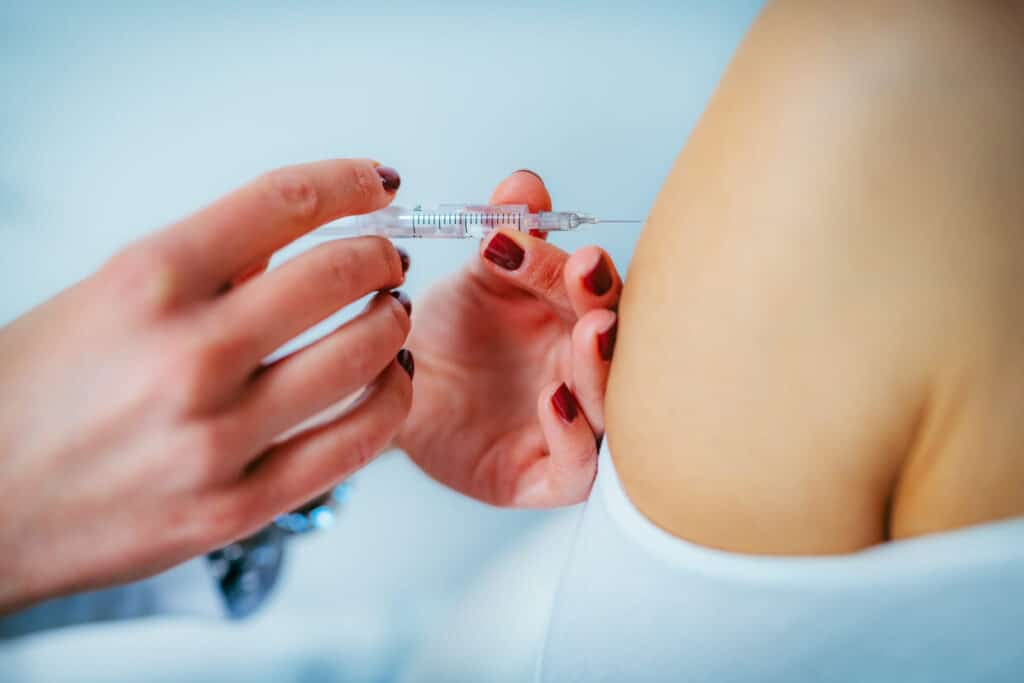
Final Thoughts
Getting your vaccines is always a good idea. But things still happen!
If something does occur, you can always use the Air Doctor app.
With the Air Doctor app in your pocket, you can access medical advice, get prescriptions, and receive expert medical guidance wherever you are in the world!
Air Doctor’s easy-to-use app gives you:
- A global network of over 20,000 multi-lingual doctors and specialists
- Choice of clinic, at-home (hotel), and video consultations
- Active in 78 countries
- Cross border prescription services
- Video consultation services in up to 21 languages and 84 countries
- 24/7 multi-lingual support
- Transparent pricing, and reviews
- Most common medical specialties
- Rated 4.8 on Trustpilot and 5 stars on Google













